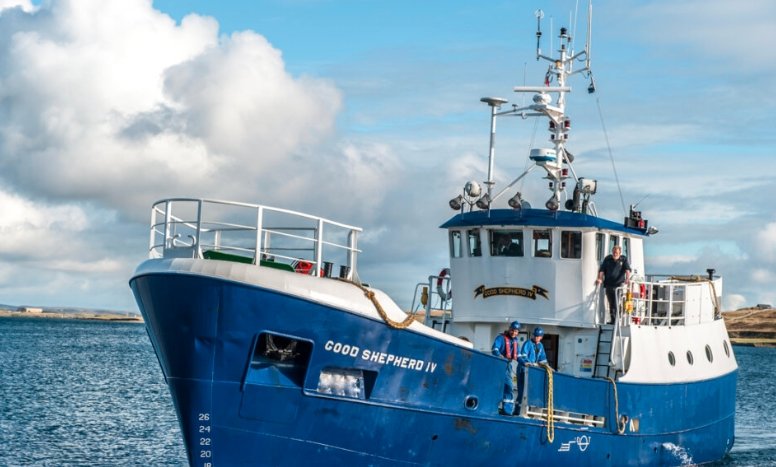A new chapter is about to begin for Scotland’s most remote island link. The Shetland Islands Council has officially awarded a £5.6 million construction contract to Parkol Marine Engineering to build a replacement ferry for the Good Shepherd IV, the lifeline vessel that’s served Fair Isle since 1986.
It’s taken years of planning, lobbying, and a sizable chunk of “levelling up” cash from Westminster — but locals are finally getting the green light on a more modern, more resilient connection to the mainland.
A Long-Awaited Lifeline for Fair Isle
Let’s be honest — the Good Shepherd IV has had a good run. Almost four decades of sailing the brutal 25-mile stretch between Grutness and Fair Isle, often in punishing conditions, is no small feat. But the old boat is showing her age.
Reliability has dropped. Freight limitations have frustrated residents and traders. And during storms, the voyage can be, frankly, grim.
That’s why Friday’s announcement has sparked cautious optimism across the Shetland Isles. A new ferry, built to modern standards, is not just about passenger comfort. It’s about survival.
One Fair Isle resident put it simply: “We don’t want luxury. We just want to get home in one piece — and maybe get the shopping delivered.”

What We Know About the New Ferry
Work is now underway between Parkol Marine Engineering and Shetland Islands Council to finalise design details. Fabrication will start at Parkol’s Whitby yard in Yorkshire once the final specs are locked in.
So far, here’s what’s confirmed:
-
It’ll be a larger and faster monohull vessel.
-
Designed to carry 12 passengers, but with better freight capacity.
-
Will meet MCA workboat code standards for safety and operation.
-
Fully Ro-Ro capable, allowing vehicles and freight to roll on and off using linkspans.
-
Hull will be reinforced for tough island conditions — regular docking at quays, slipways and rough seas.
One council engineer called it “the most robust link Fair Isle has ever had.”
That may sound simple, but for a place that often feels like a forgotten outpost, it’s a big deal.
The Numbers Behind the Project
Replacing a ferry isn’t cheap. And this project isn’t just about the boat. It includes major harbour upgrades too — at Grutness on the Shetland mainland and Fair Isle itself.
The total price tag? A whopping £45.4 million.
Here’s how it breaks down:
| Component | Cost (GBP) | Cost (USD approx.) |
|---|---|---|
| Ferry construction (Parkol) | £5.6 million | $7.7 million |
| Infrastructure (piers, linkspans) | £39.8 million | $54.7 million |
| Total project cost | £45.4 million | $62.4 million |
Funding is split between Shetland Islands Council (£18.6 million) and a UK Government grant (£26.8 million) via the Levelling Up Fund — covering nearly 60% of the total cost.
Local politicians have been campaigning hard for this money. The island’s remoteness, rough weather, and critical supply needs made it a textbook case for levelling up — but it still took months to secure the full pot.
Why Fair Isle? And Why Now?
Fair Isle isn’t just remote — it’s isolated. Population: around 60. Main industries: knitwear, crofting, birdwatching tourism. Mobile signal? Don’t count on it.
There’s no bridge, no airport with regular service, and no backup ferry.
For years, the community has lived with the knowledge that if the Good Shepherd IV went offline — due to age or weather — there’d be no easy way in or out. Basic freight, emergency supplies, even groceries, would become guesswork.
And this isn’t paranoia. In recent winters, ferry disruptions stretched for 10 days or more.
So, it’s not just a transport upgrade — it’s a resilience plan.
How the Locals Are Reacting
Reactions from the islanders have ranged from quietly thrilled to downright teary. That might sound dramatic, but if your lifeline is a 39-year-old boat creaking into dock, this is big news.
Here’s a mix of local sentiments:
-
“We’ve waited long enough. Just glad it’s finally happening.”
-
“It’s about time we had a ferry fit for the 21st century.”
-
“Hope it’s strong enough to face a January storm here!”
And then there are the knitters — yes, the globally famous Fair Isle knitters. Better freight capacity means better export routes, less spoilage in wool shipments, and more chances to get their designs to customers faster.
One crofter joked, “Maybe now the sheep won’t beat our sweaters to the mainland.”
What Comes Next?
Parkol expects to deliver the finished vessel by October 2026. Before then, design finalisation, steel fabrication, sea trials, and certification will all need to happen.
Meanwhile, port infrastructure works have already kicked off, with the goal of syncing completion timelines.
The new vessel will likely require a new name — no word yet on whether it’ll keep the Good Shepherd lineage or sail under a fresh banner. Local schoolchildren might even get to vote, if past naming traditions are followed.
There’s also been talk of climate-conscious design — possibly hybrid propulsion or fuel-efficient engines — but nothing’s confirmed.
Either way, the countdown has begun. And in two years’ time, Fair Isle might just be more connected than ever before.


















